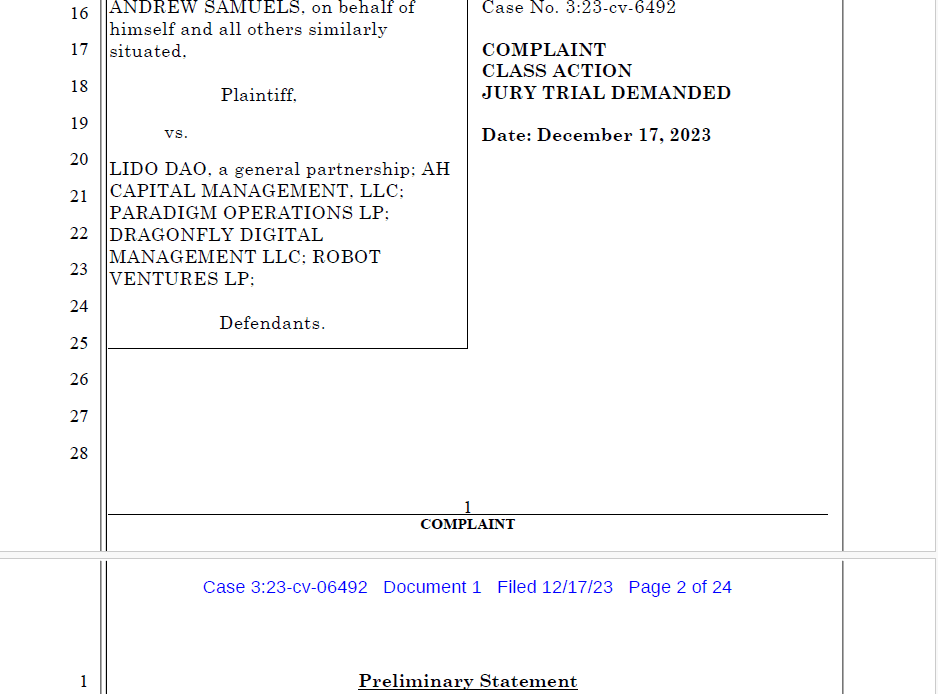A Lido holder initiated a class action lawsuit against the governing body for liquid staking protocol Lido, according to a complaint filed in a San Francisco United States District Court on Dec. 17. The lawsuit alleges that the Lido token is an unregistered security and that Lido decentralized autonomous organization (Lido DAO) is liable for plaintiffs’ losses from the token’s price decline.
Lido is a liquid staking protocol that allows users to delegate their Ether (ETH) to a network of validators and earn staking rewards, while also holding a derivative token called “stETH” that can be used in other applications. It is governed by holders of Lido (LDO), which collectively form Lido DAO.
The lawsuit was filed by Andrew Samuels, who resides in Solano County, California, the document states. The defendants are Lido DAO, as well as venture capital firms Paradigm, AH Capital Management, Dragonfly Digital Management, and investment management company Robert Ventures. The document alleges that 64% of Lido tokens “are dedicated to the founders and early investors like [these defendants],” and therefore, “ordinary investors like Plaintiffs are unable to exert any meaningful influence on governance issues.”
According to the filing, Lido DAO began as a “general partnership” made up of institutional investors. But later, it decided to have “a potential ‘exit’ opportunity.” To facilitate this opportunity, it decided to sell Lido tokens to the public by convincing centralized exchanges to make them available on their platforms. Once the tokens were listed, plaintiff Andrew Samuels and “thousands of other investors” purchased them. The price then fell, causing losses for these investors, the document alleges. It claims that these firms are liable for the losses as a result.
Related: LidoDAO launches official version of wstETH on Base
Quoting United States Securities and Exchange…
Click Here to Read the Full Original Article at Cointelegraph.com News…
























